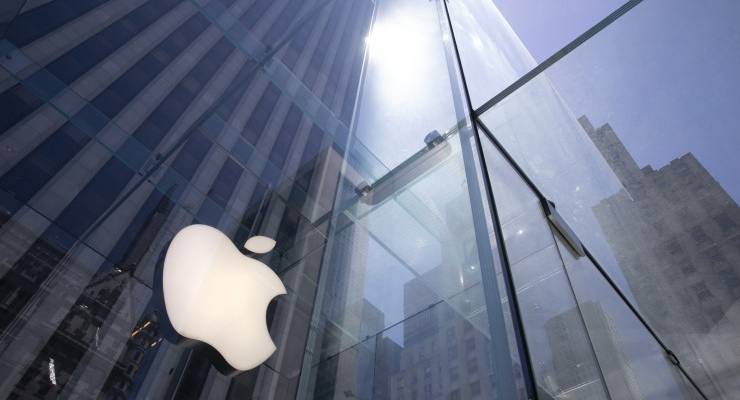
As Apple nears the point of becoming the world’s first $3 trillion company, its stocks, at least for the moment, have acquired the kind of status usually reserved for US government bonds.
On Tuesday last week — when Omicron loomed large over the global economy and the US Federal Reserve chairman Jerome Powell removed the word “transitory” from his references to inflation — Wall Street fell out of bed, but Apple shares jumped a sharp 3.2% to a then record close of US$165.30. That sent its market value above a record US$2.7 trillion — or nearly twice as much as the Australian economy on current exchange rates.
On Wednesday Apple shares rose another 2.3%, taking its market value above US$2.87 trillion. Then on Friday the shares rose 2.8% to send the company’s value to US$2.94 trillion — just US$60 billion short of the US$3 trillion level.
In the past month, Apple shares have risen more than 18%, compared with the S&P 500, the world’s major market measure, which is up just 0.62%. That means Apple shares have risen 35% year to date. Nasdaq, the major tech stock market measure, is up “only” 21%.
The share prices of rival megatechs have failed to match Apple in the past month: Microsoft is up just 1.7%; Netflix is down more than 9%; Amazon is down 2.3%; and Alphabet is off 0.6%. Shares in Meta (Facebook) are down 3.2%.
Apple has a different value proposition to its major rival, Amazon, which although anchored in the consumer space with its huge e-store operations in the United States and globally also has a massive cloud computing business, smaller bricks and mortar retailing, a growing advertising business and interests in the next generation of motor vehicles.
But Apple has a range of popular consumer products in global markets and, crucially, 750 million subscribers to its various services — and rising. It faces little of the intense regulatory scrutiny that Facebook is under and lacks the bad odour of Amazon and its anti-unionisation tactics, despite being resolutely hostile to unions.
After a decades-long run as one of the world’s best-performing stocks, Apple is on the verge of reaching US$3 trillion in market value. If it were a country, it would be the fifth largest economy behind Germany (and its value is bigger than the entire German equity market). Of the tech giants, only Microsoft, which has a market capitalisation of about US$2.5 trillion, is currently comparable.
It’s less than four years since Apple first topped US$1 trillion. In late 2000, amid the remains of the tech and net boom and bust, Apple was valued at just US$4.5 billion.
US bonds are the traditional global “safe haven” (gold has been relegated to the also-ran list for more than a year) with investors piling into them at times of stress — as they have been doing since Omicron, the new COVID variant, made its global debut on worry lists.
The rise in the Apple share price suggests that US investors see the iPhone giant as at least as good a credit risk as the US government’s securities.
Apple isn’t merely bigger than nearly every government, it’s being treated as safer than most of them as well.









Crikey is committed to hosting lively discussions. Help us keep the conversation useful, interesting and welcoming. We aim to publish comments quickly in the interest of promoting robust conversation, but we’re a small team and we deploy filters to protect against legal risk. Occasionally your comment may be held up while we review, but we’re working as fast as we can to keep the conversation rolling.
The Crikey comment section is members-only content. Please subscribe to leave a comment.
The Crikey comment section is members-only content. Please login to leave a comment.